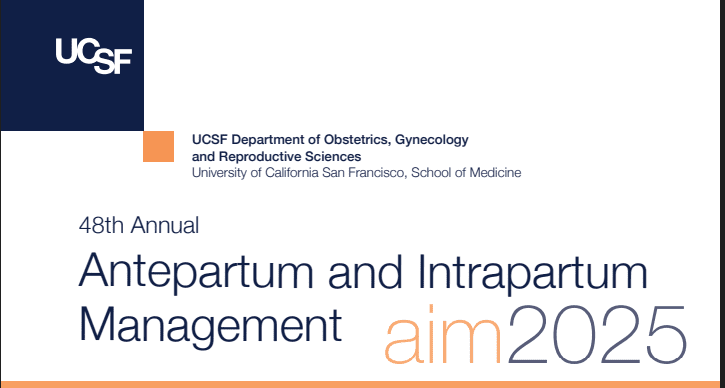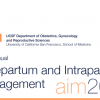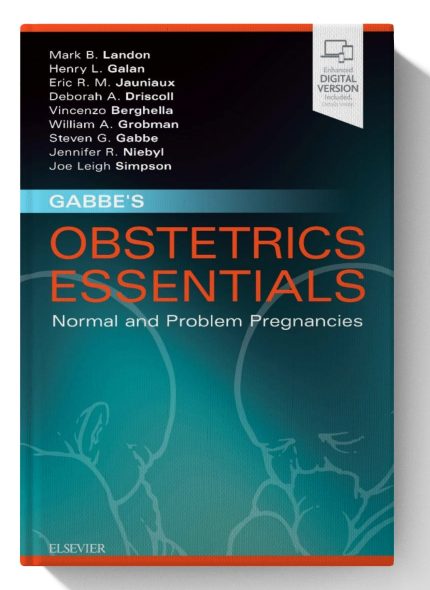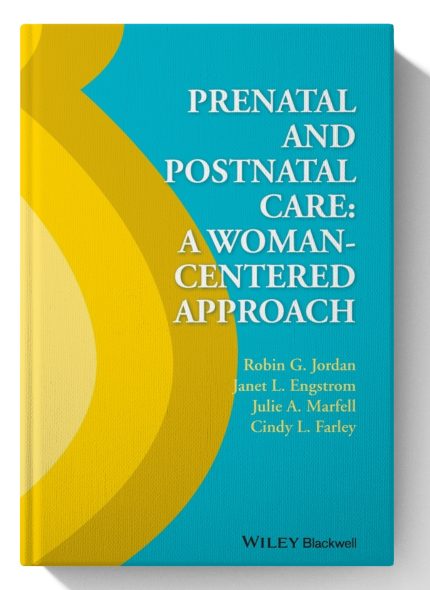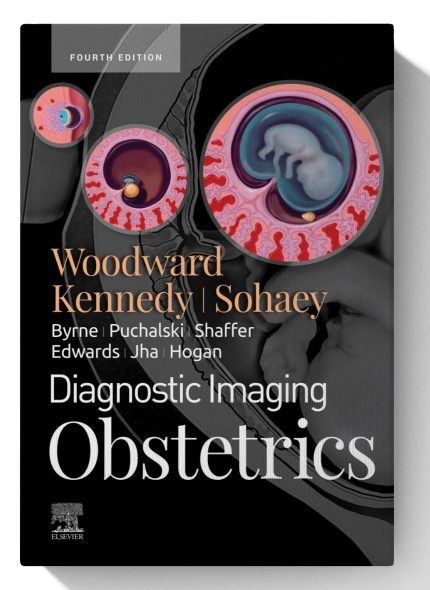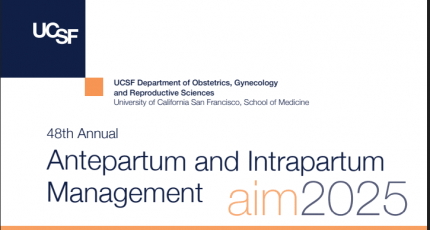UCSF Antepartum and Intrapartum Management 2025
48ᵗʰ Annual Update • Videos + PDF Syllabus • Obstetric Best Practices for MDs, CNMs, RNs & Trainees
89.99$ Instead of 825$
Now in its 48ᵗʰ year, UCSF’s flagship obstetrics program delivers the latest evidence and practical algorithms for antepartum and intrapartum care—including fetal heart-rate interpretation, hypertension, Rh management, twins, autoimmune disease, PPROM, pelvic-floor preservation, perinatal collaboratives, and more.
What You’ll Learn
Counsel & manage patients on Rh alloimmunization with non-invasive fetal blood-typing tools.
Interpret pathologic placenta/cord ultrasound findings and decide when to intervene.
Refine labor management: induction updates, Category II tracings, terminal bradycardia timing.
Optimize care of twin gestations, short cervix, PPROM, and fetal-growth restriction.
Minimize pelvic-floor injury through delivery-technique adjustments and postpartum rehab.
Diagnose & treat autoimmune and hypertensive disorders antepartum and postpartum.
Leverage statewide perinatal collaboratives to reduce morbidity and mortality.
8 Take-Home Clinical Pearls
cffDNA Rh genotyping now approved at 10 weeks—cuts anti-D use by 40 %.
Placental lakes + cord insert anomalies double FGR risk—initiate q2-week growth scans.
AIM bundles for postpartum HTN reduce readmissions by 60 %; implement before discharge.
Race-concordant teams increase prenatal-visit adherence and lower preterm birth in Black patients.
Twin-TAPS screening: weekly MCA Dopplers starting 26 wks improves neonatal outcomes.
Category II algorithm: Stripe rule (baseline, variability, waves) guides escalation vs expectant.
Short cervix ≤25 mm at 18–24 wks: vaginal progesterone decreases PTB by 44 %.
Periviable PPROM: latency antibiotics + steroids prolong pregnancy 7 days median without ↑ infection.
What’s Inside? — Program Highlights
| THURSDAY, JUNE 5, 2025 | |||
| 7:30- 8:00 a.m. | Continental Breakfast & Registration | ||
| Morning moderator: Aaron B. Caughey, MD, MPH, PhD | |||
| 8:00- 8:05 a.m. | Introduction | Aaron B. Caughey, MD, MPH, PhD | |
| 8:05- 8:35 a.m. | P | Update on Rh testing and management: New tests and recommendations | Melissa G. Rosenstein, MD, MAS |
| 8:35- 9:05 a.m. | What’s new in carrier screening? | Teresa N. Sparks,MD, MAS | |
| 9:05- 9:35 a.m. | Ultrasound findings in the placenta and umbilical cord: When to worry | Mary E. Norton, MD | |
| 9:35- 9:55 a.m. | Q&A | ||
| 9:55- 10:15 a.m. | Break | ||
| 10:15- 10:45 a.m. | P | Practical tips for intrapartum and postpartum diabetes management | Nasim C. Sobhani, MD, MAS |
| 10:45- 11:15 a.m. | P | Update on induction of labor | Nicola Perlman, MD |
| 11:15- 11:45 a.m. | First trimester obstetrical ultrasound: Tips for early dating scans | Kate Connolly, MD | |
| 11:45- 12:05 p.m. | Q&A | ||
| 12:05- 1:30 p.m | Lunch (individually arranged) | ||
| Afternoon moderator: Mary E. Norton, MD | |||
| 1:30- 2:00 p.m. | Care of the pregnant patient with a common genetic disorder | Kate Swanson, MD | |
| 2:00- 2:30 p.m. | Antepartum management of twin pregnancies | Annalisa Post, MD | |
| 2:30- 3:00 p.m. | Normalizing the high risk birthing experience | Molly Killion, RN, MS, CNS | |
| 3:00- 3:20 p.m. | Q&A | ||
| 3:20- 3:40 p.m. | Break | ||
| 3:40- 4:10 p.m. | Minimizing the impact of childbirth on the pelvic floor | Olga Ramm, MD, MS | |
| 4:10- 4:40 p.m. | P | Management of chronic hypertension in pregnancy | Sarah S. Osmundson, MD, MS |
| 4:40- 5:10 p.m. | Update on alloimmunization | Juan M. Gonzalez, MD, PhD | |
| 5:10- 5:30 p.m. | Q&A | ||
| 5:30- 6:45 p.m. | Julian T. Parer Wine and Cheese Reception | ||
| FRIDAY JUNE 6, 2025 | |||
| 7:30- 8:00 a.m. | Continental Breakfast | ||
| Morning moderator: Brian L. Shaffer, MD | |||
| 8:00- 8:30 a.m. | Management of periviable PPROM | Sarah S. Osmundson, MD, MS | |
| 8:30- 9:00 a.m. | Maternal cardiac disease: Common complaints or serious concern? | Ian Harris, MD | |
| 9:00- 9:30 a.m. | Race concordant prenatal care | Andrea V. Jackson, MD, MAS | |
| 9:30- 9:50 a.m. | Q&A | ||
| 9:50- 10:10 a.m. | Break | ||
| 10:10- 10:40 a.m. | Care of the pregnant patient with an autoimmune disorder | Roxanna A. Irani, MD, PhD | |
| 10:40- 11:10 a.m. | Improving care through statewide perinatal collaboratives | Deirdre J. Lyell, MD | |
| 11:10- 11:40 a.m. | Management of the short cervix | Hayley Miller, MD | |
| 11:40- 12:00 p.m. | Q&A | ||
| 12:00- 1:30 p.m. | Lunch (individually arranged) | ||
| Afternoon moderator: Tekoa L. King CNM, MPH | |||
| 1:30- 2:00 p.m. | F | Intrapartum management of the fetal heart rate | Judette Louis, MD, MPH |
| 2:00- 2:30 p.m. | F | Evaluation and management of Category II fetal heart rate tracings | Libby Patberg, MD |
| 2:30- 3:00 p.m. | F | Timing of delivery of terminal bradycardias: How long is too long? | Aaron B. Caughey, MD, MPH, PhD |
| 3:00- 3:20 p.m. | Q&A | ||
| 3:20- 3:40 p.m. | Break | ||
| Panel moderator: Aaron B. Caughey, MD, MPH, PhD | |||
| 3:40- 5:10 p.m. | F | Fetal Heart Rate Monitoring Cases – Panel Discussion | Meghan Duck, MS, RNC-OB, C-EFM, CNS Judette Louis, MD, MPH Deirdre J. Lyell, MD Sarah S. Osmundsen, MD, MS Libby Patberg, MD |
| SATURDAY JUNE 7, 2025 | |||
| 7:30- 8:00 a.m. | Continental Breakfast | ||
| Morning moderator: Mary E. Norton, MD & Aaron B. Caughey, MD, MPH, PhD | |||
| 8:00- 8:30 a.m. | Plastics, pregnancy, and the placenta: How big a problem? | Marya G. Zlatnik, MD | |
| 8:30- 9:00 a.m. | P | Update on postpartum contraception | Arianna Cassidy, MD |
| 9:00- 9:30 a.m. | Community birth | Melissa Cheyney, PhD | |
| 9:30- 9:50 a.m. | Q&A | ||
| 9:50- 10:10 a.m. | Break | ||
| 10:10- 10:40 a.m. | P | Update on breast-feeding | Susan D. Crowe, MD |
| 10:40- 11:10 a.m. | Fetal growth restriction | Brian L. Shaffer, MD | |
| 11:10-11:40 a.m. | P | Postpartum Hypertension: Updates on Management | Judette Louis, MD, MPH |
| 11:40- 12:00 p.m. | Q&A | ||
| 12:00 p.m. | Adjourn |
What our customers say



Update your antepartum & intrapartum skills with UCSF
Update your antepartum & intrapartum skills with UCSF’s premier obstetrics faculty—learn cutting-edge protocols, earn CME, and elevate maternal–fetal outcomes in 2025.
we’re here to all your questions
Got more questions? Feel free to contact us for more information.
How can I access the course?
After completing your purchase, you will receive an email containing the course link. This link will provide you with access to all the course materials.
What payment methods are accepted for purchasing the course?
We accept a variety of payment methods, including credit cards, debit cards, and PayPal, to make your purchase convenient and secure.
How long do I have access to the course material?
Upon purchasing any of our courses, you will enjoy unlimited access to the course material. This means you can watch and revisit the videos and other resources whenever you wish, allowing for a thorough and comprehensive learning experience.
Is the course accessible on mobile devices?
Yes, our courses are designed to be accessible on both desktop and mobile devices. You can easily access the course content using a web browser on your smartphone or tablet, providing flexibility in your learning.
Is there any certification provided after completing the course?
While our courses are highly educational and designed to enhance your knowledge and skills, they do not include formal certifications. However, the valuable expertise you gain from our courses can significantly benefit your surgical practice and patient outcomes.
What is the format of the course?
All our courses are delivered in a video series format. The content is available for high-definition download, ensuring the best learning experience for you.
Do I need any special software to access the course videos?
No special software is required to access the course videos. You can conveniently download the videos online using any standard web browser on your computer or mobile device.
Can I download the course materials for offline access?
Absolutely! You will have the option to download all course materials, including lecture slides, handouts, and supplementary resources. This allows you to access the content offline whenever and wherever it suits you best.


